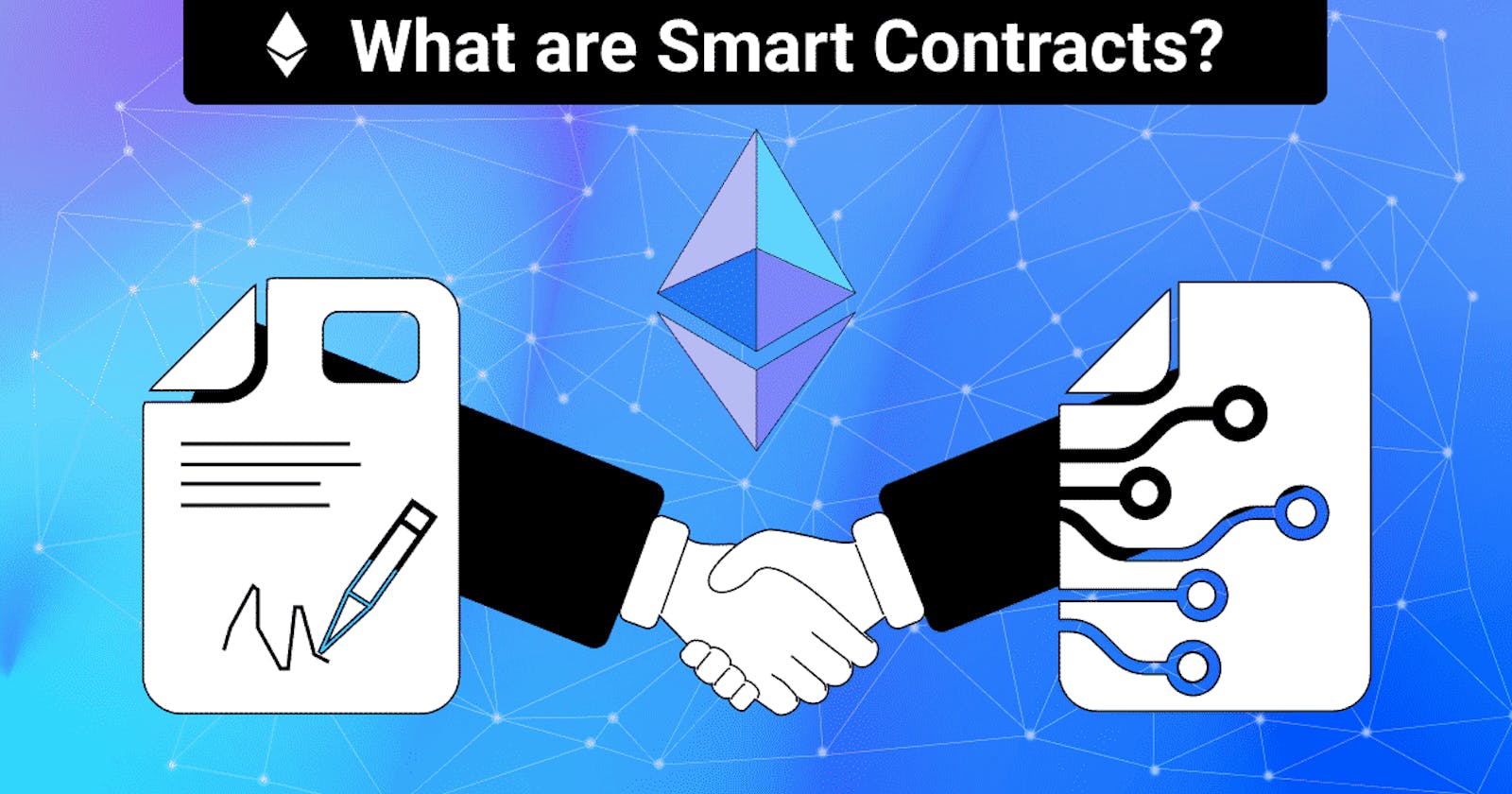Demystifying Smart Contracts: Revolutionizing Contracts and Transactions with Blockchain Technology
Unlocking Efficiency, Transparency, and Trust in Digital Agreements
Table of contents
No headings in the article.
I. Introduction to Smart Contracts
A. Definition and concept:
Smart contracts are self-executing agreements with the terms of the agreement directly written into code.
They automatically execute actions once predefined conditions are met, without the need for intermediaries.
B. Importance and benefits:
Smart contracts eliminate the need for intermediaries, reducing costs and increasing efficiency.
They enhance transparency, as contract terms are visible on the blockchain and cannot be altered.
Smart contracts increase security by using encryption and decentralized verification.
They provide trust and reduce the risk of fraud due to their self-executing nature.
C. Key characteristics:
Automation: Smart contracts automatically execute actions based on predetermined conditions.
Immutability: Once deployed on the blockchain, smart contracts cannot be altered or tampered with.
Trust: Smart contracts provide trust through the transparent and verifiable nature of blockchain technology.
II. Understanding Blockchain Technology
A. Brief overview of blockchain:
Blockchain is a decentralized and distributed ledger that records transactions across multiple computers.
It ensures transparency, security, and immutability of data by using cryptographic techniques.
B. Role of blockchain in enabling smart contracts:
Blockchain provides a secure and transparent environment for smart contracts to operate.
Smart contracts leverage the distributed consensus mechanism of blockchain for verification and execution.
III. How Smart Contracts Work
A. Programming logic and automation:
Smart contracts are written in code, specifying the conditions and actions to be executed.
They can incorporate complex logic, calculations, and interactions with other contracts or external systems.
B. Self-execution and self-enforcement:
Smart contracts automatically execute actions once the predetermined conditions are met.
They enforce compliance by ensuring that parties involved adhere to the terms encoded in the contract.
IV. Use Cases and Applications
A. Financial sector:
- Smart contracts can automate payment processing, insurance claims, and loan agreements, reducing paperwork and delays.
B. Supply chain management:
- Smart contracts enable transparent and efficient tracking of goods, authentication, and compliance verification.
C. Real estate and property transactions:
- Smart contracts facilitate secure and transparent property transfers, rental agreements, and title transfers.
D. Intellectual property rights and royalties:
- Smart contracts automate royalty distributions, ensuring proper compensation for creators and protecting copyrights.
V. Advantages of Smart Contracts
A. Efficiency and cost reduction:
- Smart contracts automate processes, reducing manual effort, paperwork, and associated costs.
B. Transparency and trust:
- Smart contracts operate on a transparent blockchain, providing visibility and eliminating the need for trust in intermediaries.
C. Enhanced security and privacy:
- Smart contracts utilize encryption and cryptographic techniques to secure data and transactions.
VI. Challenges and Limitations
A. Legal and regulatory concerns:
- Existing legal frameworks may not fully address the unique aspects and complexities of smart contracts.
B. Potential for bugs and vulnerabilities:
- Errors in smart contract code can lead to unintended consequences or exploitation by malicious actors.
C. Lack of standardization:
- The absence of widely accepted standards can hinder interoperability and adoption of smart contracts.
VII. Smart Contract Platforms
A. Ethereum:
- Ethereum is a popular blockchain platform known for its support of smart contracts through its native programming language, Solidity.
B. Other blockchain platforms:
- Various blockchain platforms, such as Cardano, Polkadot, and Stellar, also support smart contract functionality.
VIII. Future Trends and Potential
A. Integration with IoT:
- Smart contracts can be integrated with Internet of Things (IoT) devices, enabling automated and secure interactions.
B. Interoperability between different blockchain networks:
- Efforts are underway to establish standards and protocols for smart
